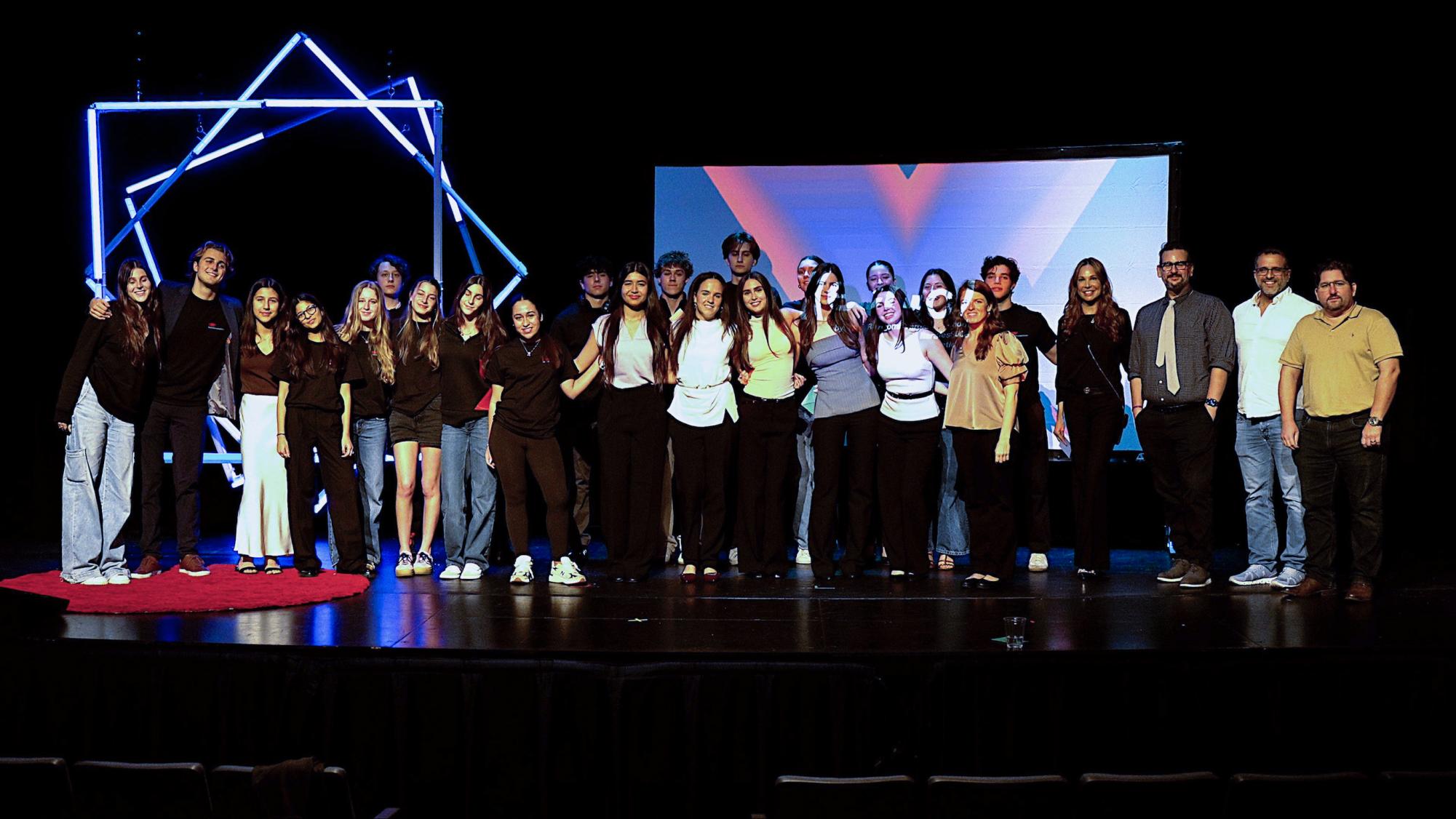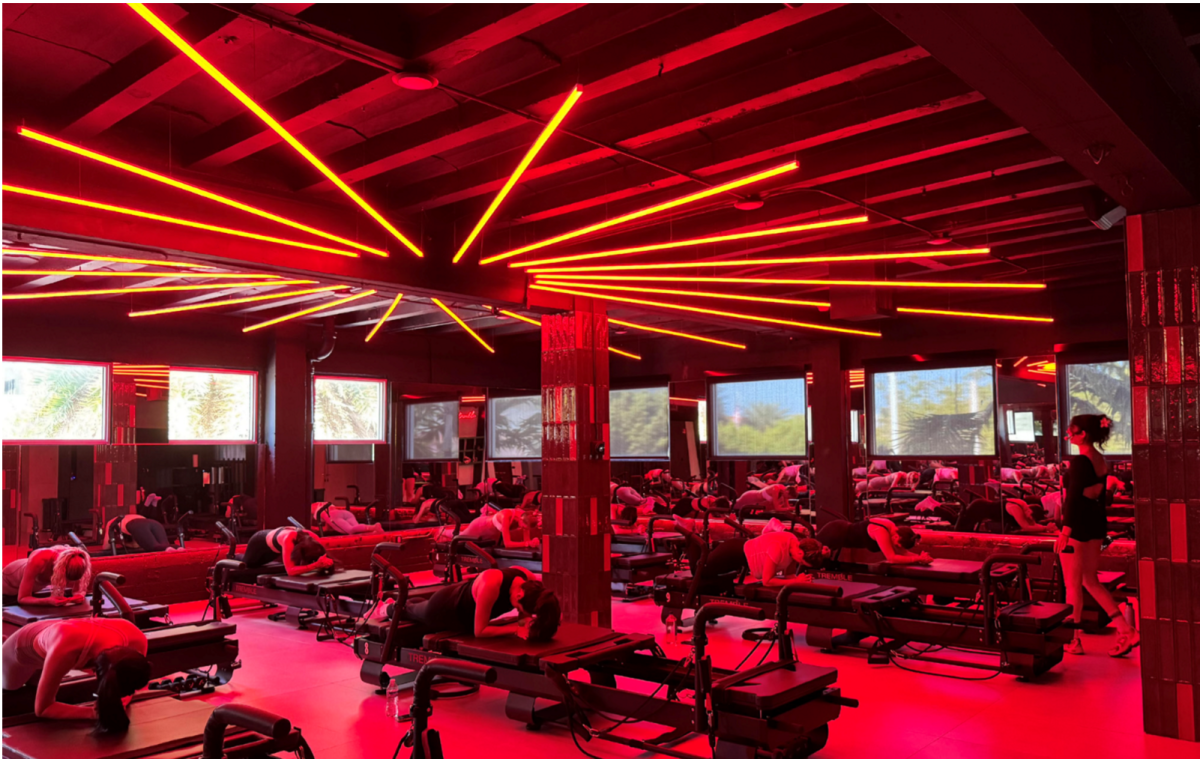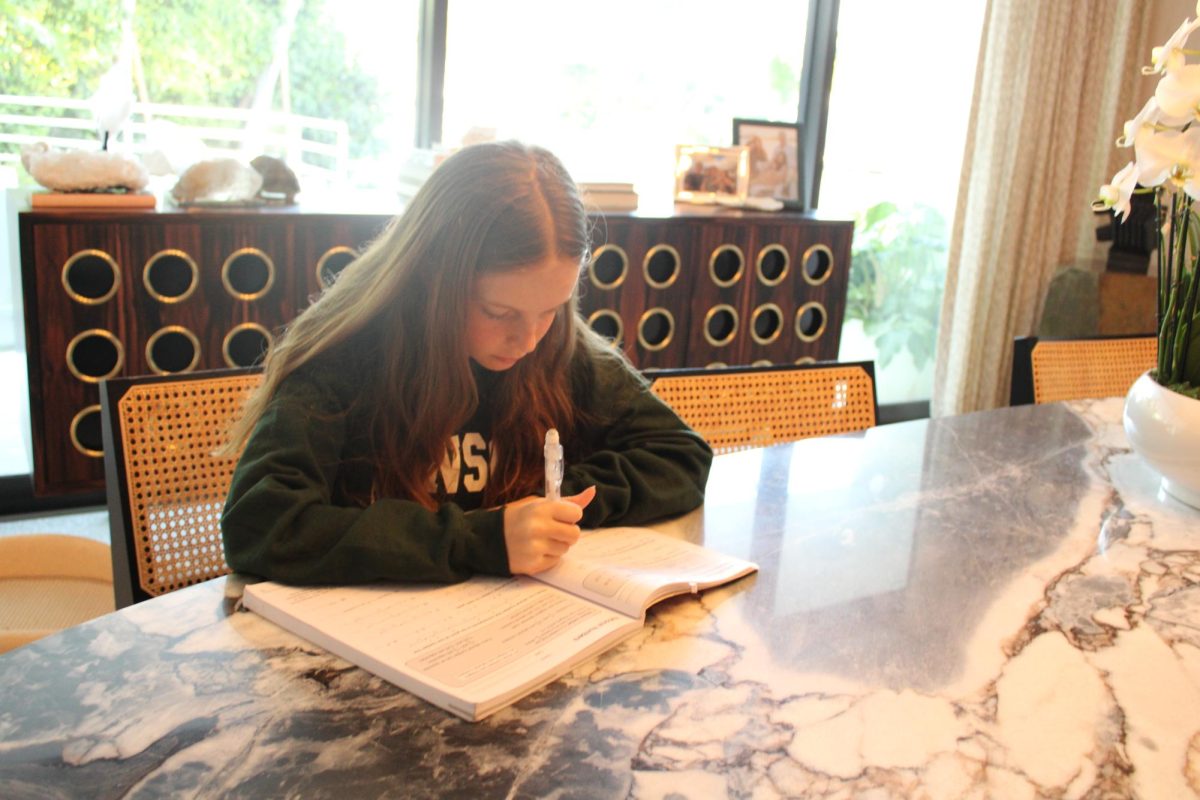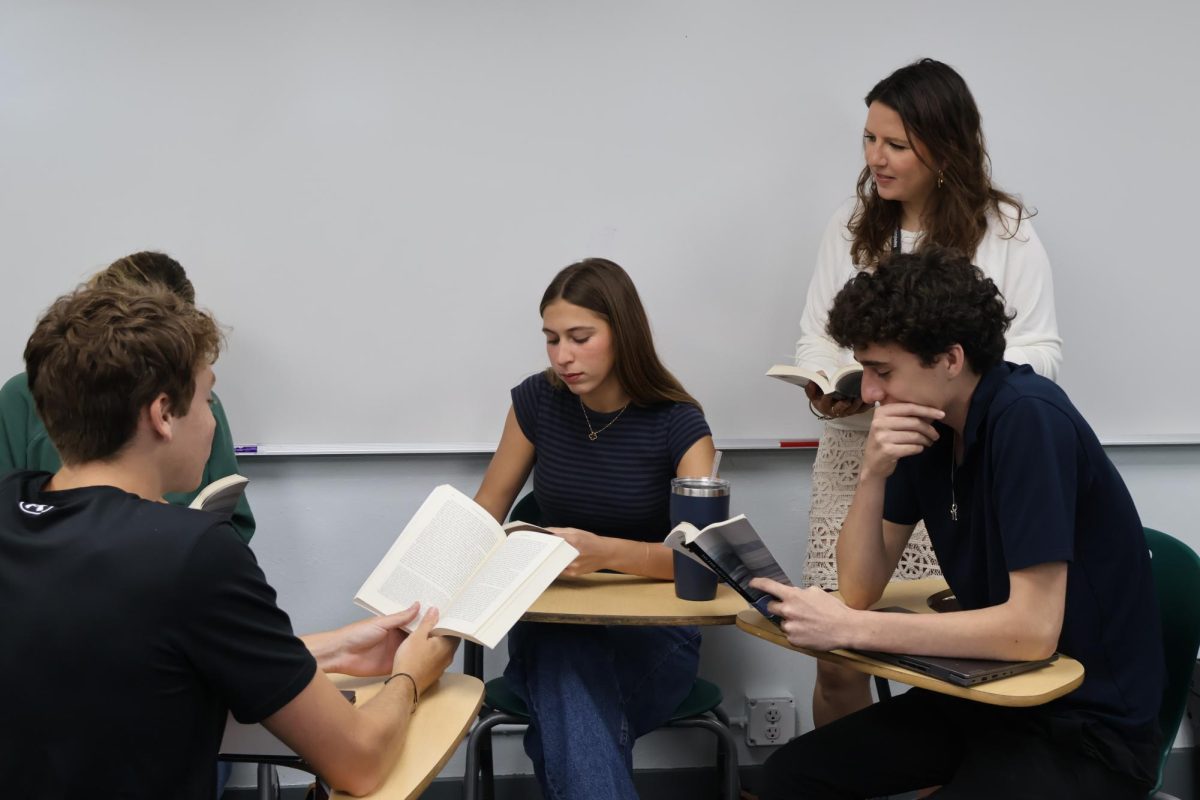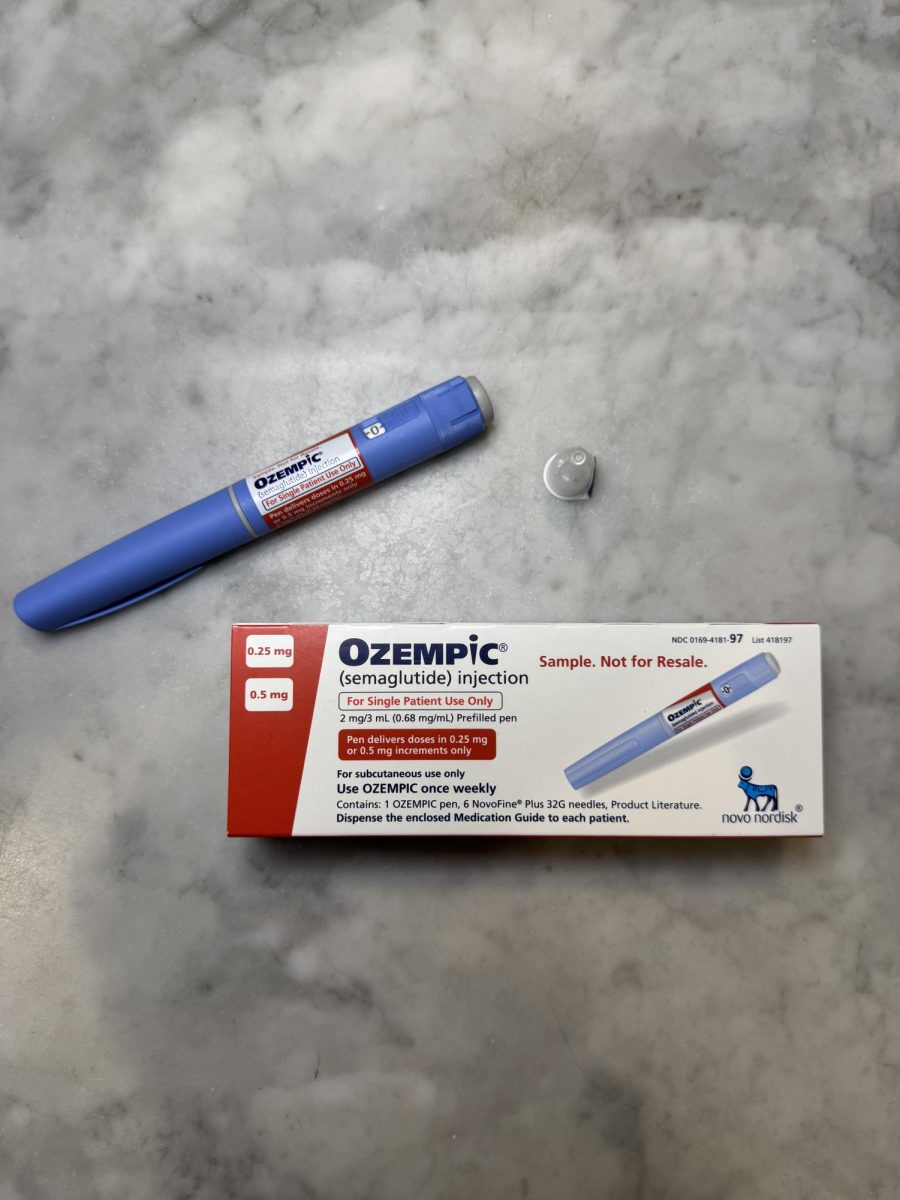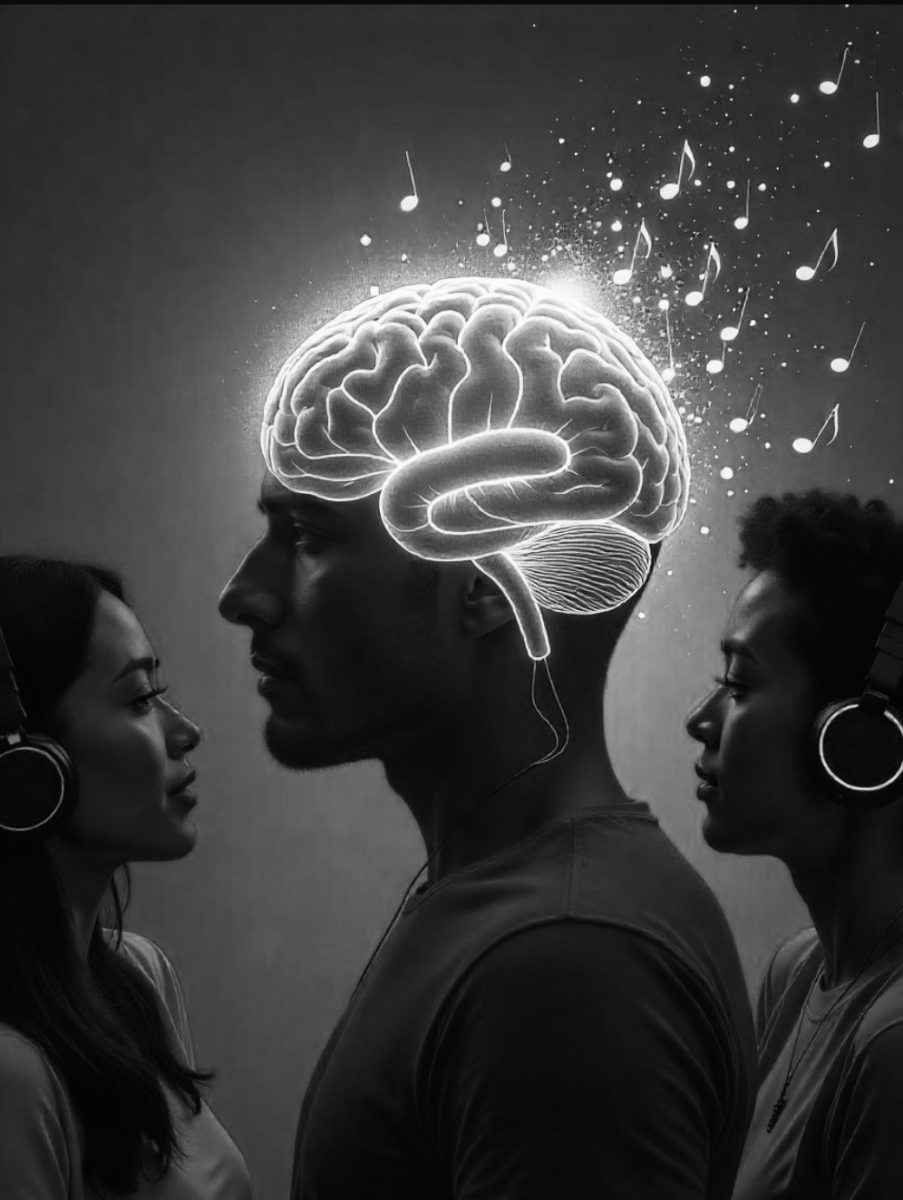On February 7, TEDxRansomEvergladesSchool took place, featuring five student speakers and one faculty member.
The TEDx program at RE started in 2012, and this was the 5th annual version of the event. Mr. Matt Stock, RE’s photography teacher, was a participant in the very first TEDx. “I will always remember being part of that first cohort of TED speakers,” he said. “The theme was square one, and I spoke about the pixel, the base of photography. I still see this as one of the most memorable parts of my RE career, and I love to see the presentations every year.”
In the years since, it has become an integral part of the RE community, drawing significant turnout annually.
Another unique aspect of the TEDx event at RE is that it is completely student-run, from lights to speech advice. A competitive application process determines the student organizers.
“It has been awesome to see the progress from a mostly faculty-directed event to one run completely by students,” Mr. Stock added.
“I have been part of the TEDx team for two years, and it has taught me many things,” explained one of this year’s planners, Winston Hosford ’27. “This has been a highlight of me RE experience because I have been able to work with upperclassmen and knowledgeable faculty advisors.”
The program was organized by a team led by Nina Tekriwal ’25. Tekriwal and the TEDx crew decided the theme, “echo,” last May and worked all year to bring it to life.
“With the theme, I wanted people to recognize patterns and be introspective about how they see life,” Tekriwal said.
Tekriwal added that she took inspiration from previous TEDx leaders Jake Perdigon ’24 and Francisco Gomez Rivas-Vasquez ’24. “Jake and Fran made me realize how much passion they infuse into TEDx, which made the work something to be proud of.”
Chloe Zaldivar ’26
Zaldivar has a keen interest in politics and enjoys reading the news, analyzing current events and understanding complex situations more deeply. She participated in TEDx, she said, because “it was an opportunity to share a message I really care about. I felt it would benefit my public speaking ability and allow me to delve into a topic I was interested in.”
Zaldivar spoke about the political landscape of the United States and how divided our country has become. Her presentation spoke about the power of political discourse to combat ignorance and misinformation. She ended her talk by saying that we must all challenge our opinions, because if not, we will forget why we believe them in the first place.
Tess Pearson ’27
Pearson, a sophomore at RE, has been a prominent member of the Jewish Students’ Association and the tennis team. She was a very close friend of Ella Adler, and she was deeply impacted by her passing. Her piece centered on grief and the lack of support many find after such a traumatic event.
“The most important thing is that you don’t repress feelings and talk about what you are going through. This is what we tried to replicate at school with the support groups at the Wellness Center,” Pearson said. Her speech tried to find solutions to issues grievers have, with her concluding that only with supportive communities can we overcome obstacles.
Ella Crowley ’26
During the past 10 years, Crowley and her family have persevered through a lot of uncertainty. When Crowley was in Pre-K, her sister Ava, a sophomore at RE, was diagnosed with stage IV cancer.
In her talk, Crowley reflected on how deep love for a sick family member can often take a toll on one’s mental health, especially because most young children do not understand the magnitude of the situation. Many siblings like her often feel neglected, angry, and sad. Her talk explained how siblings like her are impacted doubly, once due to the realization that their sibling could pass at any moment and second because of the lack of attention they receive from their parents.
“It is a brutal combination of feelings that could end with you pushing away those closest to you. That is why it is crucial to care for yourself as much as you do others,” she said.
She closed the talk by saying that even though the sick child deserves most of the attention because they might pass away, we as a community cannot forget what their siblings are going through as well. Her call to action is that we must support all families going through such devastating events.
Andrea Medina ’28
Medina, a talented STEM student, based her talk on puzzles, games that push our minds to think critically. (While listening I kept thinking about the word for puzzles in Spanish, “rompecabezas,” which means head breakers.) During her talk she touched on this idea: that while puzzles may be very challenging, the mindset and teamwork that they require are beneficial to everyone.
She said, “It is valuable to do puzzles not just because of the health benefits they provide, but also because they teach us mentalities that can make us more successful in other projects, we set our minds on.”
She concluded that solving a puzzle offers a valuable way to tackle other problems or goals. By taking everything one step at a time, relying on your team, and being creative, you are bound to achieve a good result.
Ms. Addie Eliades
Ms. Addie Eliades, a Ransom Everglades English teacher, has always had a passion for creative writing and poetry—passions she wishes to relay to her ninth grade students. She gave a talk on how contemporary poetry can be a productive outlet for creativity. She dove into how the aesthetics of this poetry can influence our worldview for the better.
Her main idea was that poetry goes beyond the poetic devices learned in high school.
“I just think there is a power to how many possibilities there are while creating contemporary poetry,” she said. “In this day and age, you can experiment with form, medium, and fields.” She had been interested in doing a TED talk for some time, and RE gave her the perfect opportunity.
Erela Yashiv ’26
Erela has lived in the four corners of the United States, from the Pacific Northwest to sunny south Florida, she has experienced how differences in city layouts affect residents. Her talk was based on how empathy is affected by urban planning. In cities that are walkable and have public transport systems that are used frequently, like New York City, human interaction is more prevalent.
“It might seem weird to think that living in New York, given the stereotypes New Yorkers get, I found it an empathetic place. But it’s true, from your supermarket cashier giving the homeless some leftovers to kids playing together in Central Park. Life in NYC felt united.”
On the contrary, in cities that she has lived in with more suburban layouts, many live in personal bubbles that do not permit too much contact with strangers. “Living in a suburbia-like city is often just driving from home to school and from school to home. The spontaneity and independence I got in other places was very limited,” she said.
She concluded that it is often the things we rarely notice, things so built into our lives, that shape it the most. It is crucial to stay present and always take time to put yourself in other people’s shoes.


